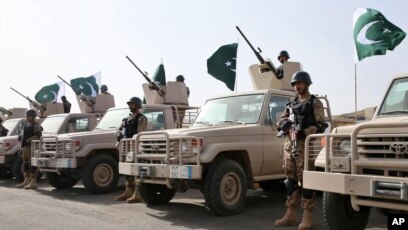Q.8 Pakistan has formally joined Saudi Arabia’s led 34-state Islamic military alliance to contain terrorism and extremism in Southwest Asia. Critically discuss whether or not Pakistan participates in the newly formed military alliance against terrorism and explain its political, socio-cultural and strategic implications on the country. 2016

Pakistan’s decision to join the Saudi-led Islamic military alliance to contain terrorism and extremism in Southwest Asia is a contentious issue that has generated significant debate.
On one hand, Pakistan has long been a victim of terrorism and extremism, and it has suffered greatly as a result. The country has been grappling with domestic terrorism for many years, and it has also been affected by the regional instability caused by the conflict in Afghanistan. Therefore, it is understandable that Pakistan would want to join an international effort to combat terrorism and extremism in the region.
Moreover, Saudi Arabia is an important ally of Pakistan, and the two countries have enjoyed close diplomatic, economic, and military ties for many years. Therefore, joining the Saudi-led alliance could be seen as a way to strengthen this relationship and to bolster Pakistan’s strategic position in the region.
However, there are also valid concerns about Pakistan’s decision to join the alliance. Critics argue that the alliance is primarily aimed at countering Iran’s influence in the region rather than combating terrorism and extremism. Moreover, some have raised concerns about the lack of transparency and accountability in the alliance’s operations and decision-making processes.
Furthermore, Pakistan’s participation in the alliance could also be seen as undermining its traditional policy of neutrality in regional conflicts. Pakistan has long maintained a policy of non-interference in the internal affairs of other countries, and its decision to join the Saudi-led alliance could be seen as a departure from this stance.
In conclusion, Pakistan’s decision to join the Saudi-led Islamic military alliance to contain terrorism and extremism in Southwest Asia is a complex issue that raises valid concerns about the alliance’s motives and objectives. While Pakistan’s participation in the alliance could be seen as a way to combat terrorism and strengthen its relationship with Saudi Arabia, it could also be seen as undermining its traditional policy of neutrality in regional conflicts. Therefore, it is important for Pakistan to carefully consider the implications of its decision and to ensure that its participation in the alliance does not compromise its national interests and strategic priorities.